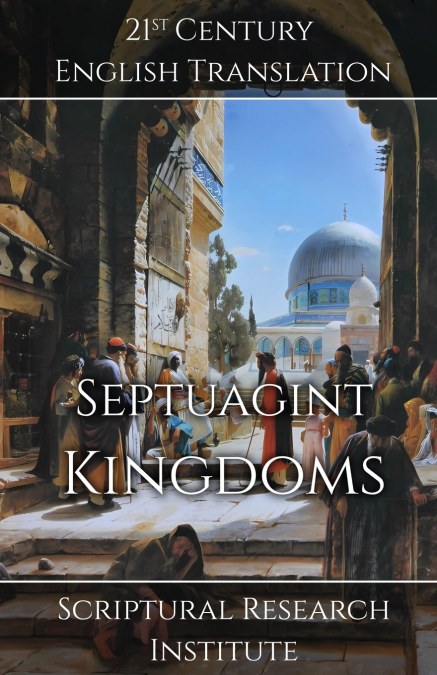
Scriptural Research Institute
The Septuagint’s 1st Kingdoms retells the story of the unification of Israel under the Benjamite King Saul in the aftermath of the collapse of the Egyptian New Kingdom. The events of 1st Kingdoms continues the history of the Hebrews told in the book of Judges, as the era of the Judges ended with Samuel, who anointed Saul, the tallest man in the land, to rule over the Israelites. Saul fought a series of wars to establish his kingdom, based in Samaria and Gilead, but alienated his family military leaders, and the general population of the land, and was ultimately killed in battle.The Septuagint’s 2nd and 3rd Kingdoms continues the history of Israel, with the lives of King David, and his son King Solomon. David was another warrior king, and expanded the kingdom in every direction, ultimately leaving a kingdom surrounded by allies and subject states to his son Solomon. King Solomon’s reign was considered by many later generations to have been the golden age of Israelite history. Unfortunately, the reign of his son Rehoboam was less popular, and the kingdom split into the kingdoms of Judah in the south, and Samaria, including Gilead in the north. As the archaeological record was yet to prove the existence of the kingdom of Israel, archaeologists consider the original three books of the Kingdoms to possibly be fiction, however, nothing contrary has been found either, and so the history recorded in the first three books of the Kingdoms cannot be disproved either.The Septuagint’s 4th Kingdoms tells the history of the kingdoms of Samaria and Judah from circa 850 BC until the Babylonians conquered Judah circa 600 BC. This era of history is well documented in the historical records of the Assyrians, Egyptians, and Babylonians, and unlike the earlier books of the Kingdoms, is generally accepted by historians. This era included the rise and fall of the Aramean Empire based in Damascus, the rise and fall of the Assyrian Empire farther north, the Assyrian wars against Egypt, and the sack of Thebes, and ultimately the rise of the Babylonian Empire. During this tumultuous time, the kingdoms of Israel, Judah, and Aram, which appears to have been considered an Israelite kingdom by the prophet Ezekiel, struggled for survival and fell one by one to the expanding empires around them.Before the era of 4th Kingdoms, Samara had established an empire, occupying the Aramean kingdoms of Damascus and Hama in modern Syria, which had ended suddenly when an earthquake had leveled Samaria. The earthquake was mentioned in the Book of Amos, and archaeological evidence of it is found throughout modern northern Israel and the Palestinian West Bank. It is estimated to have been between 7.8 and 8.2 on the Richter Scale, and aftershocks likely lasted around 6 months. In the aftermath, Damascus rose to form its own Aramean empire, occupying Hama, and northern Samaria, as well Gilead in southern modern Syria, which had been part of Samaria since the division of Israel into Samaria and Judah. However, as Assyria began to expand to the north, Samaria and Aram formed an anti-Assyria alliance, and the Samarian forces were stationed in Aram to help defend the northern border from the Assyrians. Judah was invited to join the alliance, but instead formed an alliance with the Assyrians and invaded and pillaged Samaria and southern Aram.